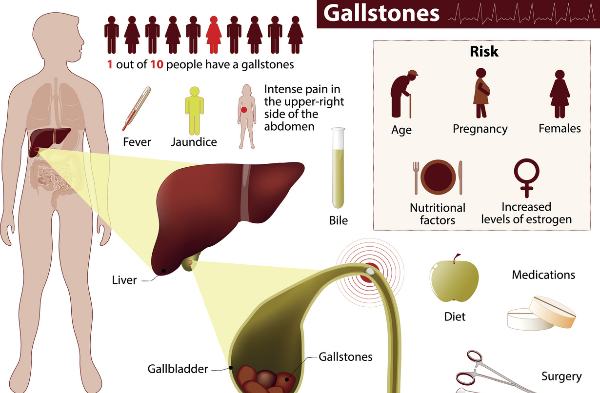Why do you keep waking up at the same time each night?
If you find yourself persistently waking up at roughly the same time each night, you’re not alone. Here in the UK, it’s thought that 56% of women and 49% of men are long-term poor sleepers.
According to traditional Chinese medicine, our internal organs work to a 24 hour clock (not dissimilar to the biological clock that governs sleep!) and that certain times of the day can be peak times for particular organs, when they will be working at their busiest. Waking up during the night could be a sign that something isn’t quite right with that particular organ, so today I’m going to go more in depth to examine what your nightly wake-up times could mean and possibly how to go about correcting them for a better night’s rest.
Thyroid and adrenals: 9pm – 11pm
According to Chinese medicine, if you’re finding it difficult to nod off at this time of night, it might be connected to your thyroid and adrenal glands. These different sets of glands are responsible for a variety of functions within your body, but your adrenals are primarily known for producing cortisol.
Normally, around this time, your production of cortisol should actually be slowing down, however, factors such as stress can affect its secretion. If you’ve had a long, stressful day, your production of cortisol can continue, meaning that come 10pm, you’ll still be feeling wide-awake and will probably find it very difficult to sleep.
Eventually, though, your adrenals will become fatigued due to this increased demand which can have a knock-on effect on your thyroid glands. Your thyroid is primarily responsible for producing hormones and regulating your metabolism – if your thyroid becomes imbalanced, it can have some not-so-happy results for your hormones, causing your levels of oestrogen and progesterone to fluctuate, sometimes resulting in hot flushes!
What you can do
Between 9pm and 11pm is generally considered to be your ‘wind down period’, a time when your production of melatonin and the neurotransmitter adenosine should be increasing, making you feel tired and sleepy. Don’t resist these waves of sleepiness – going to bed after 11pm can inhibit your body’s ability to repair. Instead ease yourself into a consistent sleep hygiene routine – switch off your smartphones now!
Consider your stress levels and try not to overload your digestive system. I’d recommend considering your diet during the day (remember, no heavy eating after 7pm!) and cutting down on fatty, processed or sugary foods during the day. Instead, focus on foods that may help your adrenals, such as leafy green vegetables like spinach or antioxidant-rich fruits such as blueberries and cherries!
Top tip: This is the best time to take our gentle sleep remedy Dormeasan, so why not add a little to your fruit juice 30 minutes before bedtime to help you drift off?
Gallbladder: 11pm – 1am

You’ve now moved out of your ‘wind down’ phase and should hopefully be asleep so your body can start to do some serious repair and maintenance work. If you’re still awake after 11pm it can lead to higher levels of inflammation and increased pain sensitivity.
If you happen to wake up during this phase of sleep, it may be indicating that all is not quite well with your gallbladder, a small digestive organ that stores bile, secreting it into the digestive tract after you eat to help you breakdown foods. Your gallbladder is also responsible for emulsifying fats, so they can be absorbed into your blood stream, and for removing cholesterol.
However, in recent years gallbladder problems seem to be increasing with the formation of gallstones becoming a bigger problem. This can be a real issue as sometimes gallstones do not present any symptoms so you may not even realise that you have a problem! In Chinese medicine, gallbladder symptoms are associated with shoulder pain, dizziness, headaches and emotional problems such as resentment and bitterness.
Unfortunately, age, gender and body weight do play a role in how predisposed you are to gallbladder problems. Women are twice as likely as men to develop gallstones due to factors such as excess oestrogen, which is sometimes brought on by factors such as hormonal contraceptives and HRT. As you age, your body will also start to release more cholesterol into your bile, aiding the formation of gallstones.
What you can do
Gallbladder problems are frequently linked to dietary issues – food allergies, a diet high in refined, fatty, sugary foods or inadequate levels of stomach acid. If you want to support your gallbladder, it’s important that you start by slowly cutting back on processed carbohydrates and unrefined carbohydrates.
Since low levels of stomach acid are also thought to affect your gallbladder health, it might be worth checking out our low stomach acid pages written by our digestive expert Ali Cullen. As she details, chronic stress over a prolonged period of time can affect your stomach acid levels so do try to take steps to eliminate stress.
Self-Care Tip: Waking in the night
Need more advice on what to do if you are prone to waking in the night? Watch the video below from our Product Trainer Sarah:
Liver: 1am – 3am
Welcome to your immune-strengthening phase of sleep! This is when your immune system gets a chance to get some maintenance done so this particular period is very important if you have a cold or flu!
However, this is also the most common time for people to wake up and sometimes it can be down to your liver. Your liver is responsible for cleansing your blood, producing bile and storing glycogen as well as a multitude of other essential body functions. It is the only organ you possess that is capable of regenerating itself so that should say something about its importance straight away!
According to Chinese medicine, waking up at a time when the liver is active may indicate that your liver could be becoming overwhelmed by the detoxifying process, stimulating symptoms such as back pain, PMS and irritability. Your liver also helps to breakdown melatonin and, if this process is interrupted, it can make you feel tired during the day and more awake later at night.
When you experience stress, it can place your liver under some strain as you will be producing more adrenalin, this, in turn, will use up your stores of glycogen, which the liver uses as an energy source. If your liver becomes sluggish, you can produce even more adrenaline to compensate, which may disturb your sleep and keep you awake at night.
What you can do
Stress is not good for your body as a whole and it certainly won’t be doing your liver any favours, so keep an eye on your mood during the day. It’s important to tackle the issue at the root – I offer more information about stress here, but for now, I would recommend getting plenty of fresh air and exercise, or possibly trying one of our gentle stress remedies such as AvenaCalm (just don’t take this while you’re using Dormeasan!)
When it comes to supporting your liver, cutting out rich, processed foods can make a real difference. The impact of alcohol on your liver is also well-documented, but did you know that alcohol can also directly impact your circadian rhythm too? If you feel your liver could use an extra helping hand, we do offer a remedy prepared using traditional liver-supporting herbs such as Dandelion, Milk Thistle and Artichoke!
Taking part in a simple liver detox may also do your liver the world of good too so it’s definitely worth considering!
Lungs: 3am – 5am
By this phase you should be moving out of deep sleep and into REM sleep. This is when you should be dreaming – you need to dream in order to process your memories and emotions and dream deprivation can have a number of serious consequences.
According to Chinese medicine, this is also the phase of sleep associated with your lungs and respiratory system. The chances are you’re already well versed in what your lungs do (they allow oxygen into your body and get rid of carbon dioxide) but their presence on this list may seem a little odd.
However, in Chinese medicine, the lungs are often associated with immune protection and grief. If there is an imbalance, it’s not unusual to experience symptoms such as wheezing, coughing or low immunity.
Sleep and the respiratory system can have a noticeable impact on each other – your lungs help to expel waste from your body and during REM sleep breathing can become faster while your cough reflex is repressed. However, in cases of obstructive sleep apnoea, your airways can become blocked which may lead to low blood oxygen levels. When this happens, your body will instinctively wake up in order to correct this blockage.
What you can do
If you’re waking up during this sleep phase, it might be indicating that something isn’t quite right with your respiratory system, whether it’s a cold or possibly allergies. Fortunately, when it comes to issues such as your immune function and allergies, there are plenty of treatment options. For example, one of our most popular products during the hayfever season is Pollinosan, a natural hayfever remedy that can also help with allergic rhinitis, diminishing some of the irritating symptoms associated with such allergies.
Sinuforce is another one of our remedies that’s very popular at this time of year, providing rapid relief from nasal catarrh and congestion. You could also try our Cough Spray too if you’re suffering from a dry, tickly cough that’s keeping you up at night; however, if you really want to support your immune system, I’d recommend our Echinaforce Echinacea tablets, which are traditionally used to combat cold and flu symptoms!
Large intestine: 5am – 7am
This should hopefully be the phase of sleep where you wake-up as your production of cortisol will increase. However, there’s nothing worse than waking up forty-five minutes before your alarm is due to go off. It’s too soon to get up but your chances of falling back asleep are greatly reduced so why do you keep waking up at 0545? The answer possibly lies with your large intestine.
Your large intestine is responsible for absorbing water from indigestible food matter and eliminating any useless waste products from the body. According to Chinese medicine, it’s perfectly normal to wake up at this time to perform a bowel movement, however, persistently waking up without feeling the need to evacuate your bowels can sometimes hint at larger problems such as constipation or dehydration.
What you can do to help
Avoid the urge to snooze when you hear your alarm go off and instead, get up and embrace the day. If you’ve had a poor night of sleep, you’ll probably be feeling clumsier, groggy and craving carbohydrates. It might be a good idea to avoid caffeine at this time as it may cause further irritation and can act as a diuretic. Instead, focus on drinking plenty of plain water and think carefully about your diet.
There are medicines out there that can cause bouts of constipation or other digestive symptoms, as our digestion expert Ali details in her article ‘Medicines which can cause constipation’, so it’s always worth checking the side-effects of any medications you may be taking.









